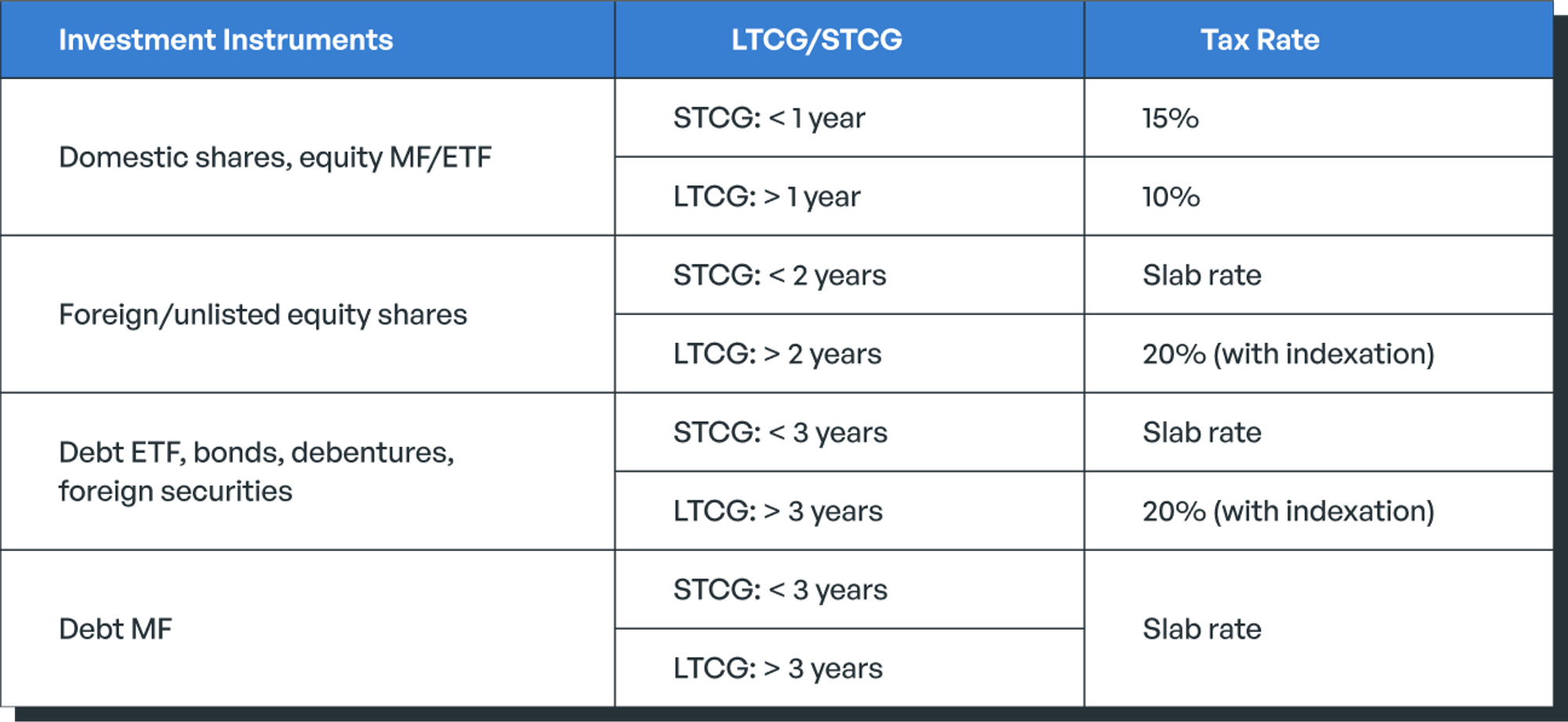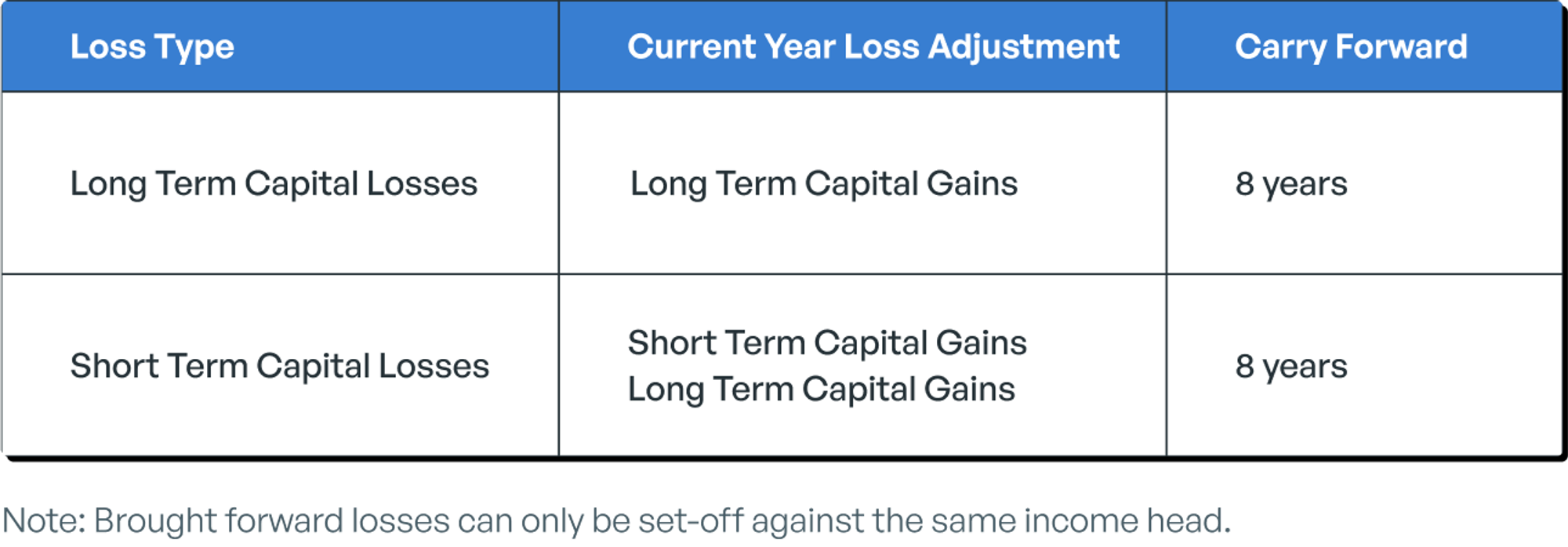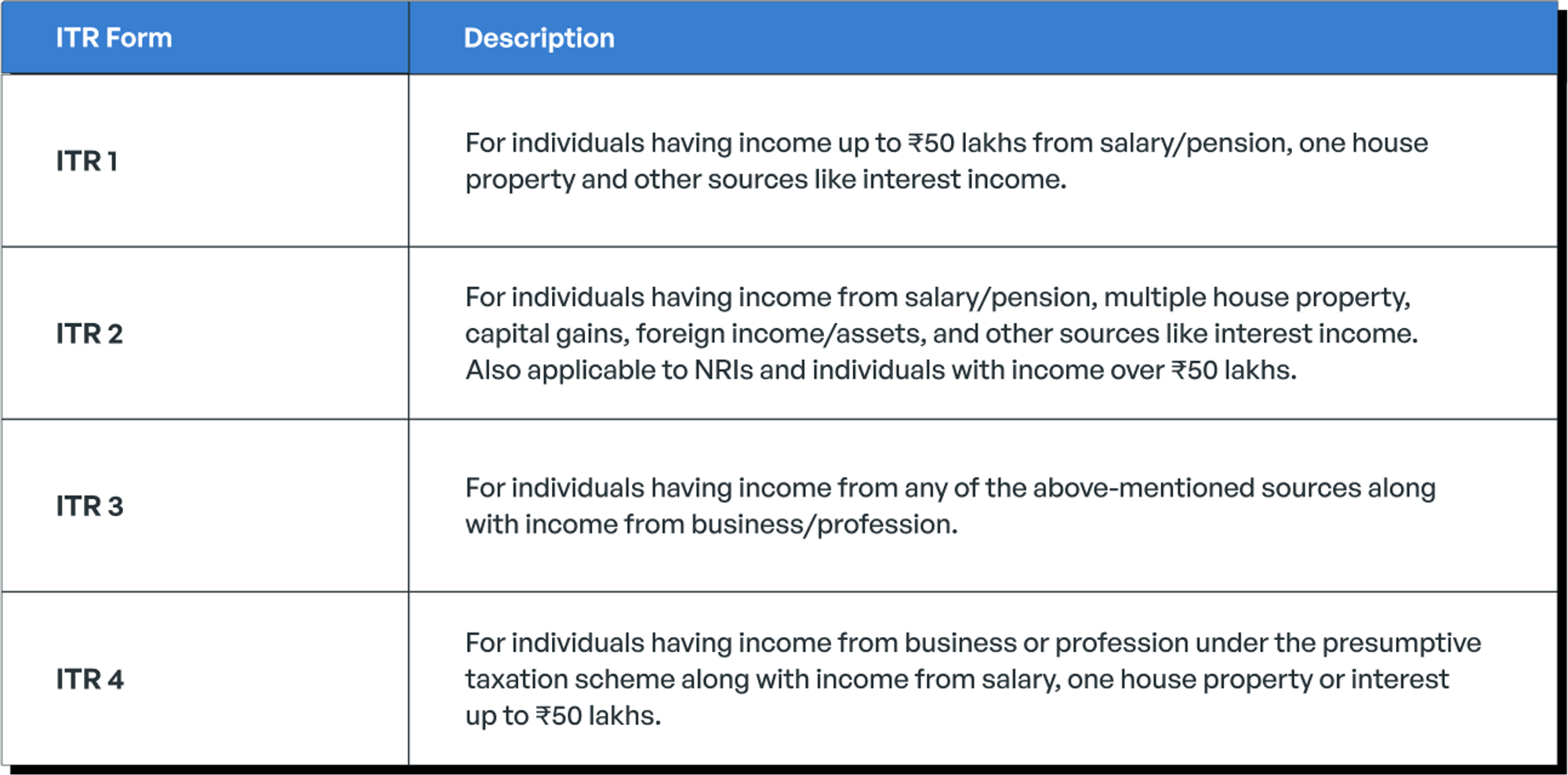
Income tax for stock market investors
Understanding income tax for investors
India has witnessed an unprecedented surge in individuals entering the stock market realm, with demat accounts skyrocketing from 4.1 crore before COVID to 13 crore by September 2023. The Indian mutual fund industry has seen a fourfold growth in the last decade, reaching ₹46.37 lakh crores in July 2023.
Amidst the IPO frenzy and the rising popularity of investments, it’s imperative for investors to grasp a crucial aspect often overlooked — income tax implications.
In this blog post, we’ll help you understand everything about income tax for investors.
Investors vs Traders
Before delving into the intricacies of income tax, it’s crucial to distinguish between investors and traders.
Investors, in it for the long haul, focus on capital appreciation, while traders dance in and out of stocks, capitalizing on short-term price fluctuations.
Technically, investors are those who take delivery of stocks in their demat accounts and play the waiting game, while traders are people who do intraday and F&O trading.
This post zeroes in on taxation nuances for investors.
Different income sources for investors
Income Tax categorizes earnings into five heads of income:
- Income from salary
- Income from house property
- Income from business or profession
- Income from capital gains
- Income from other sources (IFOS)
For investors, the key income sources are capital gains and dividends.
Capital appreciation from selling stocks or mutual funds falls under “Income from capital gains,” while dividends are tagged as “Income from other sources.”
Taxation on capital gains
The duration of holding an investment, known as the holding period, determines whether capital gains are short-term or long-term.
Tax rates vary accordingly.
For equity investments, a holding period under one year incurs a 15% tax rate (short-term), while over a year attracts a 10% tax rate (long-term).
Similar distinctions apply to foreign equity shares and debt instruments. Check the table below.
Note that the rules for debt mutual funds were change from April 1, 2023. No matter how long you’ve held them, debt mutual funds are taxed at your slab rates without any indexation benefits.
Now remember that while calculating tax liability on your investments, you will have to add up your gains and losses from all of your stocks and mutual funds, and then calculate the total tax liability on the net capital gains for the financial year. And the same rulebook applies when you’re dealing with other investment instruments and asset classes.
Further, you will have to be careful about rightly categorising your gains into short term and long term, and then calculate the tax liability for each category as per the applicable tax rates.
Taxation on dividends
Dividends are taxable in the hands of investors or shareholders at their regular slab rates, and you will have to report these earnings under the IFOS head in your ITR.
Further, if your dividend payout goes past ₹5,000, the company or mutual fund house will deduct a 10% TDS.
How to save taxes as an investor
There are different ways investors can save taxes on their investments.
- Availing the ₹1 lakh exemption on LTCG: Long term capital gains earned in a particular financial year of up to 1 lakh rupees are exempted from taxes. This exemption is only applicable for equity investments like stocks and equity funds. So, if you earn 80,000 rupees in long term capital gains from selling your stocks, you will have to pay ZERO taxes on these profits.
- Tax harvesting: It is a strategic approach that involves booking profits before they exceed ₹1 lakh and reinvesting the amount back into the same stock or fund.
- Tax loss harvesting: This focuses on booking loss on poor-performing investments and offsetting them against capital gains, thereby reducing tax outflows. But don’t forget to check the set-off rules as shown in the image below.
- Availing exemption u/s 54F: Long term capital gains earned from stocks or mutual funds can be reinvested in a new residential house property. This way, you can get an exemption on the reinvested amount under Section 54F.
- Forming an HUF: You can form an HUF, open a demat account on its PAN, and use it for investing and trading activities. This can help you optimise your profits and reduce your tax liabilities. You can check out video to learn more about HUF.
How to pay and file taxes as an investor?
All individuals are required to file their income tax return by 31st July of the respective assessment year.
Filing income tax returns requires a checklist of documents including:
- Form 16
- Form 26AS
- Annual Information Statement (AIS)
- Capital gains statement
- Tax P&L statement
Finally, before you sit down to file your ITR, selecting the right ITR form is crucial. Check the table below to understand which ITR form is relevant for you.
For most investors, ITR 2 is applicable.
Lastly, it is important to understand that paying taxes and filing ITR are two different things. Payment of taxes should happen as and when you earn income. This concept is called advance tax.
Advance tax provisions apply if your total tax liability is equal to or greater than ₹10,000 in a particular financial year. Whatever be your tax liability, it should be paid in four installments across the year as shown in this table.
Conclusion
In conclusion, understanding income tax for investors is not just about compliance; it’s a strategic move to retain more of your hard-earned money.
If you found this information valuable, please feel free to ask any questions or share your thoughts in the comments. If you need any assistance with planning your taxes and seamlessly navigating ITR filing process, you can visit Quicko — India’s leading tax filing platform.
That’s it for today, see you in the next one!





What is LTCG/STCG difference between a Debt ETF vs Debt MF?
For example what is the taxation formula to be used for LIQUIDBEES if we invest it in the year 2024 and withdraw in 2025 and 2028.
Very useful and practical information
Thank you for enlightening on Taxation
Dilvery segment
If you go on the IT website….it’s like a never ending maze.
Indians often compare themselves with the best of the nations ….so do compare with their tax regime too along with the filing process.
Asneet Grover rightly said…tax in India is punitive. You are doing charity to government.
Leave India and you will be on step one of getting rich if not wealthy.